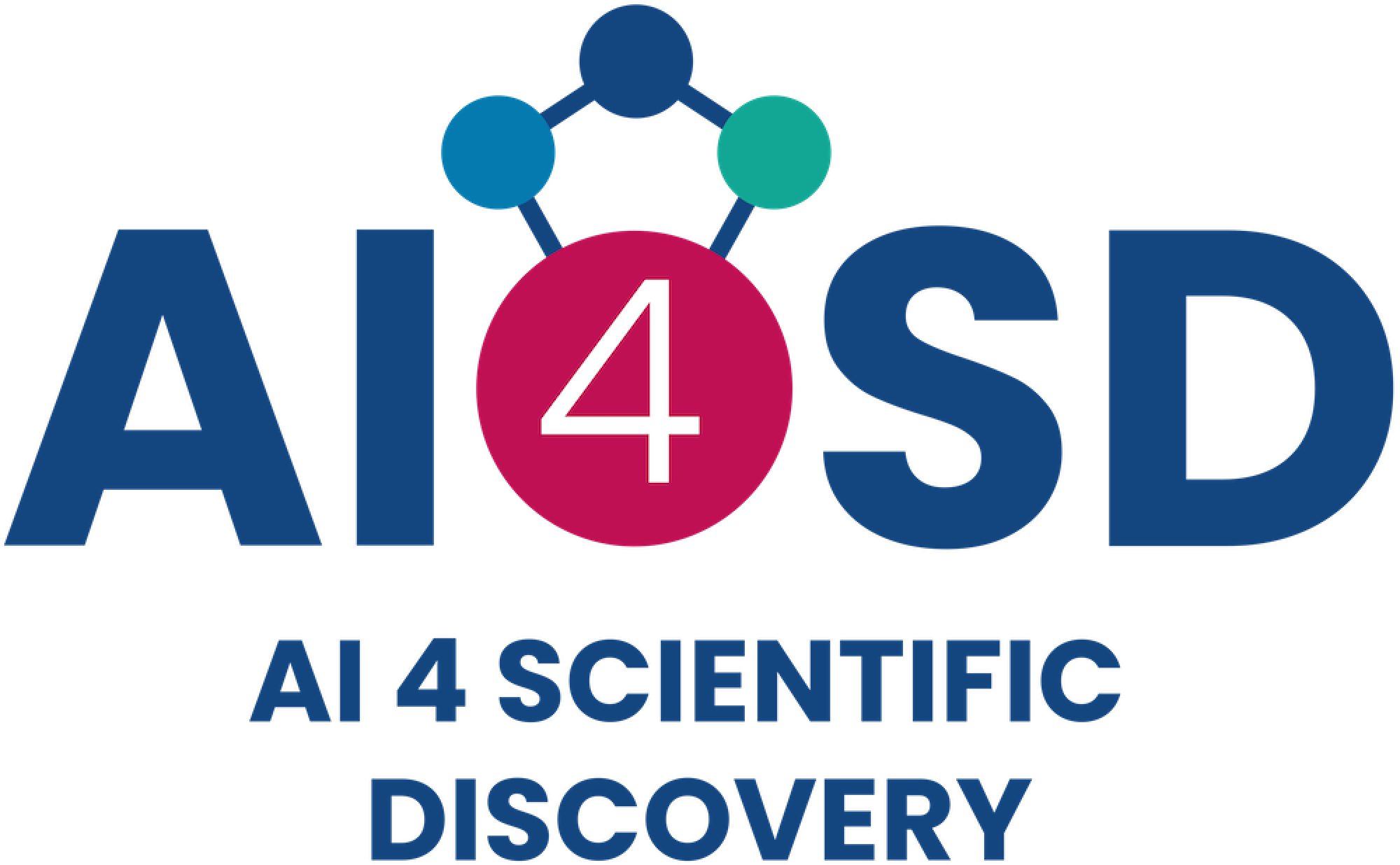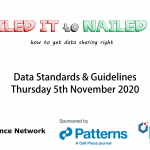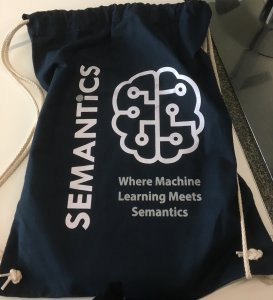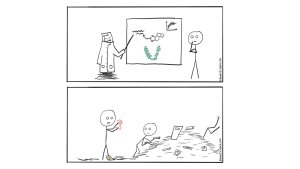This the fifth event in the virtual Skills 4 Scientists series run by the Artificial Intelligence for Scientific Discovery Network+ (AI3SD) and the Physical Sciences Data-Science Service (PSDS). This seminar was hosted online via a zoom webinar and the event consisted of four talks on this subject. Below are the speaker biographies, and the full playlist of this seminar can be found here.
Writing a good Abstract & Best Practices for Scientific Communication – Dr Sarah Callaghan
Sarah Callaghan comes to Patterns from a 20-year career in creating, managing, and analyzing scientific data. Her research started as a combination of radio propagation engineering and meteorological modeling, then moved into data citation and publication, visualization, metadata, and data management for the environmental sciences. She was editor-in-chief of Data Science Journal for 4 years and has more than 100 publications. Her personal experience means she understands the frustrations that researchers can have with data. She believes that Patterns will bring together multidisciplinary groups to share knowledge and solutions to data-related problems, regardless of the original domain, for the benefit of humanity and the world.
Presenting in Person & Online – Dr Nicola Knight
Nicola Knight is an Enterprise Research Fellow at the University of Southampton working on the Physical Sciences Data-Science Service (PSDS). She completed her Masters of Chemistry (MChem) at the University of Southampton previously before undertaking a PhD in Chemistry under the supervision of Professor Jeremy Frey. Her PhD focused on the interface between Chemistry and Computing with research in chemical modelling, remote experiments and the implementation of IoT technology in scientific research. Nicola’s current research interests are in the use of computing in scientific labs and notetaking with particular interest in IoT technologies and streamlining the research process.
Producing a good poster – Mr Jonathan Lightfoot & Dr Heather McKenzie
Jonathan Lightfoot has worked in IT training at the University of Southampton for 15 years and is currently a Learning Designer within iSolutions (the IT Dept). After getting a degree in Politics he qualified as a teacher of Social Sciences in secondary education but was drawn into teaching IT before moving on to become a software trainer at the turn of the millennium. He worked for Key Training in London for 8 years running courses across the MS Office suite from introductory level courses to corporate graduate training at VBA programming level. He is a Microsoft Office Specialist Master. He believes passionately in empowering others to develop new skills and is the University’s LinkedIn Learning academic support and system administrator. Over the last 5 years he has delivered workshops on design principles for academic research posters for the Doctoral College and individual academic schools at the University, drawing on collaborations with IT colleagues, academics, the University Library, the Doctoral College and the University’s Print Centre.
Heather Mackenzie is the Doctoral College Professional Development Programme Manager at the University of Southampton, having previously worked as the Researcher Development Coordinator at the University of Portsmouth. In these roles, she’s been supporting Postgraduate Researcher Development at a University-level since 2013 alongside teaching postgraduate researchers, maintaining an active research profile, and supervising doctoral students. She completed a BSc in Psychology before working as a Research Assistant looking at the role of self-efficacy in retention and achievement of undergraduates. Heather then successfully completed her PhD in Health Sciences developing a new quality of life scale for teenagers with food allergies, before working on a variety of research projects from cluster-randomised trials of flooring for falls prevention, to systematic reviews of worldwide food allergy prevalence, and presenting research at national and international conferences both small and large. While working as a researcher, Heather also supervised doctoral students and lectured on evidence-based practice and research methods for healthcare practitioners. She’s currently a co-author on a Cochrane systematic review and has a keen research interest in doctoral education.
Collaboration for Presentations & Reports – Dr Samantha Kanza & Dr Nicola Knight
Nicola Knight is an Enterprise Research Fellow at the University of Southampton working on the Physical Sciences Data-Science Service (PSDS). She completed her Masters of Chemistry (MChem) at the University of Southampton previously before undertaking a PhD in Chemistry under the supervision of Professor Jeremy Frey. Her PhD focused on the interface between Chemistry and Computing with research in chemical modelling, remote experiments and the implementation of IoT technology in scientific research. Nicola’s current research interests are in the use of computing in scientific labs and notetaking with particular interest in IoT technologies and streamlining the research process.
Samantha Kanza is an Enterprise Fellow at the University of Southampton. She completed her MEng in Computer Science at the University of Southampton and then worked for BAE Systems Applied Intelligence for a year before returning to do an iPhD in Web Science (in Computer Science and Chemistry), which focused on Semantic Tagging of Scientific Documents and Electronic Lab Notebooks. She was awarded her PhD in April 2018. Samantha works in the interdisciplinary research area of applying computer science techniques to the scientific domain, specifically through the use of semantic web technologies and artificial intelligence. Her research includes looking at electronic lab notebooks and smart laboratories, to improve the digitization and knowledge management of the scientific record using semantic web technologies; and using IoT devices in the laboratory. She has also worked on a number of interdisciplinary Semantic Web projects in different domains, including agriculture, chemistry and the social sciences.










